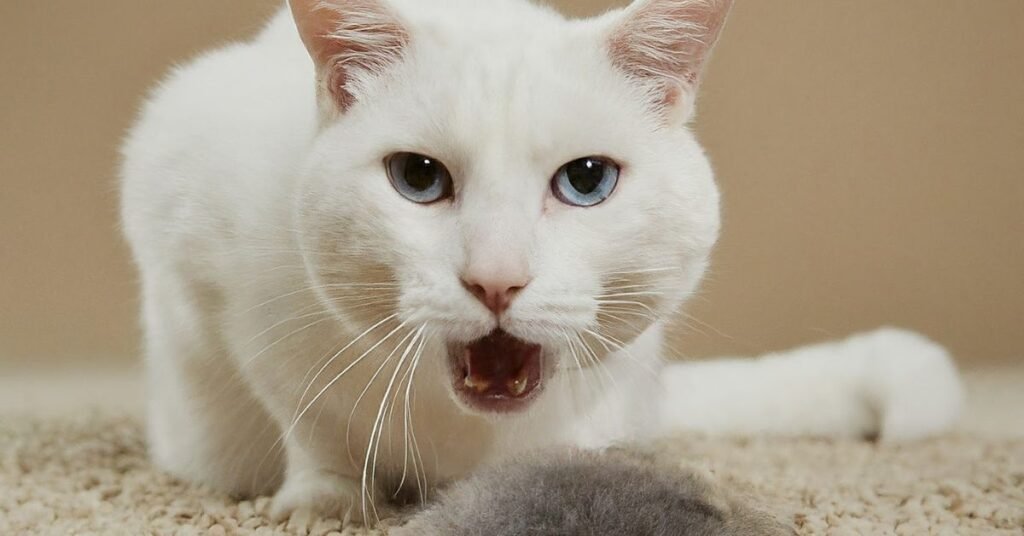The sight (and smell) of a cat hacking up a hairball is enough to make any pet owner cringe. But beyond the initial disgust, hairballs are a common feline issue that can sometimes indicate underlying health problems. Understanding why hairballs happen and how to prevent them can help keep your furry friend feeling their best and your carpets fur-free.
Why Hairballs Happen:
Cats are meticulous groomers. Their rough tongues act like natural brushes, constantly removing loose fur, dirt, and debris. But all that ingested fur has to go somewhere, right? Unfortunately, unlike humans who can cough up or swallow hair whole, a cat’s digestive system struggles to pass large amounts of fur. The fur accumulates in their stomachs, eventually forming a hairball that they must expel through coughing or vomiting.Factors Contributing to Hairballs:
Several factors can contribute to hairball problems in cats:- Longhaired Breeds: Longhaired breeds like Persians, Maine Coons, and Ragdolls naturally shed more fur, increasing the risk of hairball formation.
- Seasonality: Shedding seasons can exacerbate hairball problems as cats lose more fur than usual.
- Lack of Brushing: Regular brushing helps remove loose fur before it gets ingested during grooming.
- Stress and Anxiety: Excessive grooming due to stress or anxiety can lead to a higher fur intake.
- Underlying Health Issues: Sometimes, hairballs can be a sign of underlying health problems like inflammatory bowel disease or digestive blockages. Consult your veterinarian if hairball frequency increases or your cat shows other concerning symptoms.
Signs and Symptoms of Hairballs:
While the telltale hacking and coughing up a hairball are obvious signs, other symptoms can indicate a potential hairball issue:- Frequent licking: Excessive grooming can be a sign they’re trying to eliminate ingested fur.
- Loss of appetite: Hairballs can cause stomach discomfort, leading to decreased appetite.
- Lethargy: Discomfort from the hairball can make your cat feel sluggish and less active.
- Straining in the litter box: Difficulty passing stool can be a sign of a hairball causing a blockage.
Preventing Hairball Problems:
The good news is that there are ways to prevent hairballs and keep your cat feeling comfortable:- Regular Brushing: Brushing your cat regularly, especially during shedding seasons, removes loose fur before it gets ingested.
- Dietary Changes: A high-fiber diet can help move hair through your cat’s digestive system more efficiently. Consult your veterinarian for recommendations on hairball control cat food.
- Hairball Laxatives: There are commercially available hairball lubricants and laxatives that can help ease the passage of hairballs.
- Encourage Hydration: Adequate water intake keeps your cat’s digestive system functioning smoothly, aiding in the passage of hair.
- Environmental Enrichment: Provide your cat with scratching posts and engaging toys to redirect their grooming behavior and reduce stress-induced licking.
When to See a Veterinarian:
While hairballs are a common feline issue, it’s crucial to seek veterinary attention if:- Hairballs become a frequent occurrence (more than once a week).
- Your cat shows signs of difficulty passing stool or vomiting blood.
- They lose their appetite or become lethargic.

